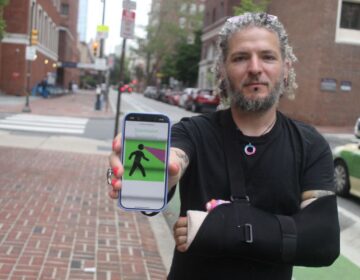Too beat to make the call? Here are 6 tips for fighting decision fatigue

(Nurse image courtesy of Shutterstock.com)
You’ll probably notice that the decisions you make late in the day may not be as productive as the ones you make earlier. It’s a real thing, called decision fatigue. Here are some tips for working through it.
Ever noticed anything different about the decisions you make at the end of the workday, versus those in the beginning?
Think back to late-day decisions in the past week or so — about a project, a case, a deal, or even a change in your job. Were you responding to an annoying client, colleague or boss? Were you making a snap decision about an online purchase or even food for a snack or dinner?
You’ll probably notice that the decisions you make late in the day may not be as productive as the ones you make earlier. In those late-day muddles, you may end up feeling like all you can do is throw your hands up and toss a dart at an invisible decision-dartboard with quadrants for “Yes,” “No,” “Maybe,” and just “F— it.” Or you may find that you make decisions that end up creating more havoc than they solve.
It’s a real thing, called decision fatigue. It’s been identified by psychologists for a few years now. John Tierney, writing for The New York Times, had a good way of describing it:
“The more choices you make throughout the day, the harder each one becomes for your brain, and eventually it looks for shortcuts, usually in either of two very different ways. One shortcut is to become reckless: to act impulsively instead of expending the energy to first think through the consequences. (Sure, tweet that photo! What could go wrong?) The other shortcut is the ultimate energy saver: Do nothing. Instead of agonizing over decisions, avoid any choice. Ducking a decision often creates bigger problems in the long run, but for the moment, it eases the mental strain.”
And what’s interesting is that, like most things in life, decision fatigue is grounded in our bodies.
Late in the day, our glucose levels and physical energy are usually at a low ebb, the opposite of where they need to be for our decision-making abilities to be optimum. But if we don’t recognize decision fatigue as a phenomenon, we can overlook it and assume it’s just normal late-day weariness. We can miss out on the fact that we’ve lost a good baseline for the ability to make clear decisions.
There’s a “new normal,” so to speak, that gets reinvented late in every workday. And that new normal starts to feel normal-normal by about mid-afternoon, and we don’t realize that our brains are going into a defensive mode, in relation to decisions, that can look a little more like a deer in headlights — or my cat when she doesn’t know where to run from the vacuum and ends up charging straight under my feet.
So circle back to those late-day decisions you were thinking about from the past week. Think about them earlier on in the day, and see if you’d do something differently.
Going forward, here are some tips to handle this decision max-out we all face at work:
The night before, after you’ve had dinner and are winding down, see if there are smaller decisions you can go ahead and make for the next day — what’s for lunch? is there an extra meeting you can say no to?
Try to make bigger decisions earlier in the day, even if it means compartmentalizing some of your more routine tasks for later in the day.
Check your sleep. Need to rethink your bedtime, white noise, room-darkening shades, or a few yoga poses before bed?
Make sure you’ve had something solid to eat before heading into work or soon after you get there. Even if it’s small, make sure you have protein and carbs in your system.
If you do have a decision-intensive afternoon, get a healthy snack before heading into it.
And finally, it’s always a good thing to stop and reflect on your days and ask yourself if there are places in your life that have become overly cluttered — like your social calendar, and even physical places, such as your closets and cupboards. To simplify where you can, you may find deeper pay-offs than just better workday decisions.
WHYY is your source for fact-based, in-depth journalism and information. As a nonprofit organization, we rely on financial support from readers like you. Please give today.




